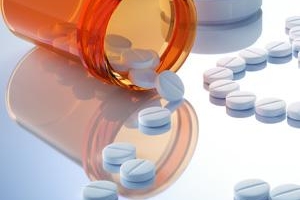Limit pharmacy coupons for brand-name drugs?

On Tuesday, March 19 the New Hampshire House of Representatives passed a bill that prohibits pharmacies from accepting coupons for a brand-name prescription drug if a cheaper, generic version of the drug is available.
The bill, HB 717, includes some exceptions, for example if a doctor determines a patient needs the non-generic, brand name drug.
The bill now heads to the New Hampshire Senate.
About prescription drug coupons
Many pharmaceutical companies offer discounts, vouchers, and other coupons to cover some or all of a patient’s insurance copay for a brand-name drug. A pharmacy that accepts a coupon gets reimbursed by the drug manufacturer. The insurance company still pays their full share of the drug’s costs.
There is debate over how these coupons impact health care costs.
Do coupons increase everyone's insurance costs?
Generally speaking, brand-name drugs are more expensive than generic drugs, and so insurance companies tend to charge patients higher copays for brand-name drugs. Ideally this motivates patients to select the less expensive generic drugs.
If a coupon covers all of the copay for a more expensive brand-name drug, a patient may choose that brand-name drug. The insurance company then must pay for the more expensive drug, which contributes to higher insurance premiums for all patients.
Rep. Garrett Muscatel wrote:
“These coupons sound great but end up adding to the overall cost of drugs. While you as the consumer pay less for your drug at the pharmacy, your insurance company picks up the tab for an expensive, unnecessary brand name drug, increasing your, and everyone else’s, premiums.”
The federal government already prohibits Medicaid and Medicare patients from using these coupons.
Do coupons save needy customers money?
Coupons are critical for some low-income patients who struggle to cover copays.
For that reason, several health care organizations oppose HB 717. The New Hampshire Hospital Association wrote:
“For instance, there are many individuals that utilize coupons for drugs that have a generic equivalent. However, due to the structure of a patient’s insurance plan, their high deductibles and copayments make the generic drug still extremely expensive and unaffordable without the use of coupons. A good example would be insulin for diabetes.”
Opponents of HB 717 also point out most of the time a coupon is not used when there is a generic drug available, so the bill would probably not do much to lower premiums.











Comments
Login or register to post comments